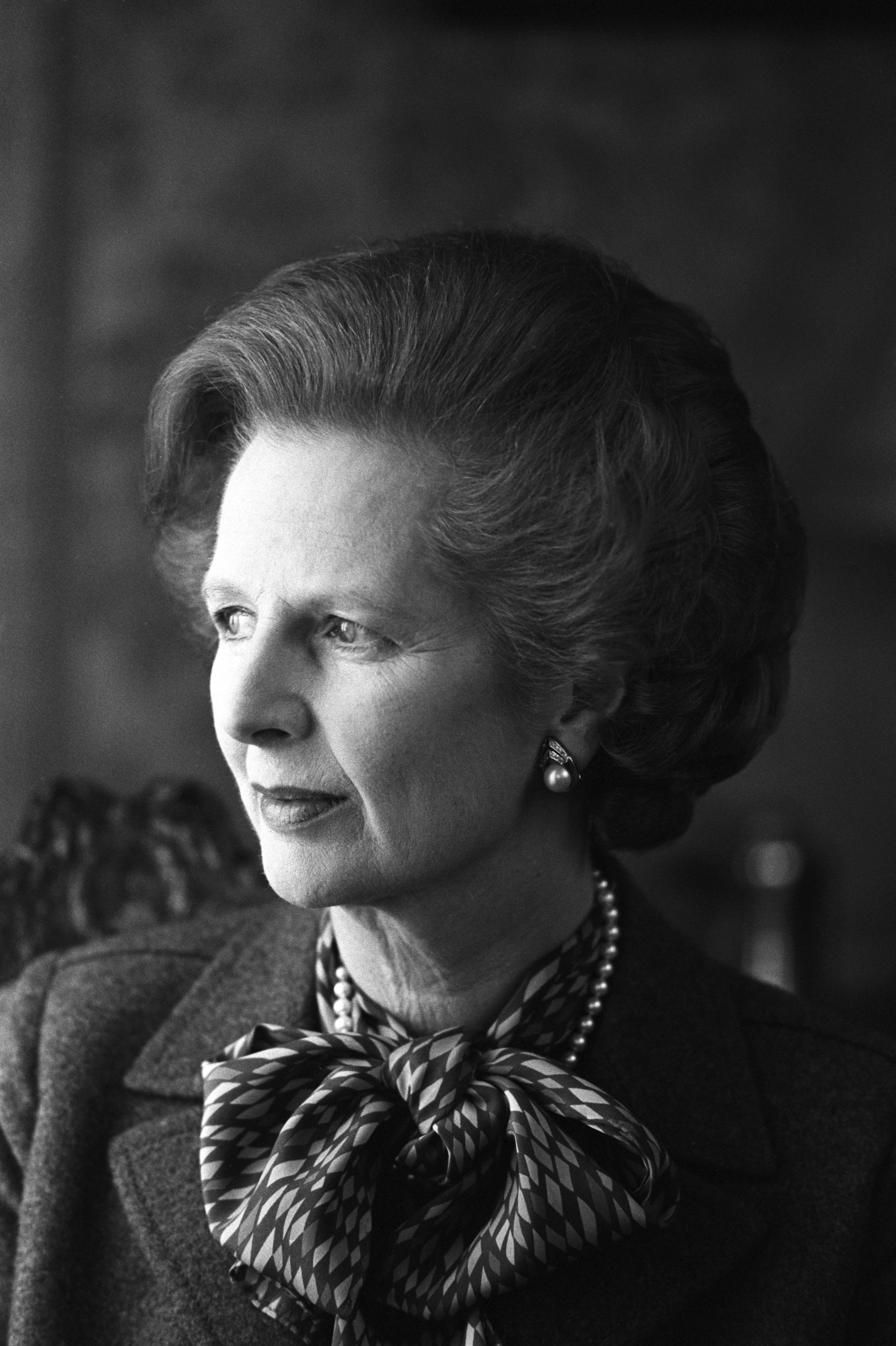Britain's matron complex
In times of deep national crisis, British boys always scan the crowd for mother


A free daily email with the biggest news stories of the day – and the best features from TheWeek.com
You are now subscribed
Your newsletter sign-up was successful
Britain's Conservative Party is full of mummy's boys.
Margaret Thatcher, the U.K.'s first and only female prime minister, took the reins of the Conservative Party in 1975, won her first election in 1979, and set out to fix an economically crippled Britain. Unapologetically, she stomped on trade unions, went to war with the Argentines, and left Irish hunger strikers to starve to death. Driven by dogma, Thatcher brought a fierce new order and smacked down her detractors. Her male-dominated party, which took a risk putting a woman in charge, looked on in terrified, infatuated awe.
Now, in their frantic post-Brexit rush to find a viable new party leader and prime minister following David Cameron's resignation, the Conservatives have honed in on two women — political newbie Andrea Leadsom and the more likely victor, Home Secretary Theresa May. This will be the first time in the 26 years since Thatcher left office that a woman will lead the Tories and, thus, at least for now, the nation.
The Week
Escape your echo chamber. Get the facts behind the news, plus analysis from multiple perspectives.

Sign up for The Week's Free Newsletters
From our morning news briefing to a weekly Good News Newsletter, get the best of The Week delivered directly to your inbox.
From our morning news briefing to a weekly Good News Newsletter, get the best of The Week delivered directly to your inbox.
Why are the Conservatives suddenly willing to accept another lady boss? Perhaps it's because the country's in as bad a state today as it was back in the late '70s. The pound is plummeting, a recession is looming, and the far left and the far right are soaring in popularity. In times of deep national crisis, for which this moment eminently qualifies, Conservative boys always scan the crowd for mother.
They're not after a warm mommy figure to make them cocoa and tuck them into their Spiderman bed sheets. No, they want to salute the sturdy breast of a strict schoolmarm — an Iron Lady, if you like — who will swoop in and clean up the mess left by those naughty Brexiter schoolboys Boris Johnson and Michael Gove. There is, evidently, something thrilling and comforting for some British men about passing power to a strong woman when everything seems to be going wrong. In troubled times, they want nothing more than to put on a diaper, curl up in a fetal position, and dial 1-800-Dominatrix. But instead of black PVC, their girl arrives wearing an electric blue pantsuit.
As the most prominent woman in David Cameron's cabinet, May has long been compared to Thatcher. Political commentators have likened her dress sense, her take-no-prisoners oratory, and her tough stance on immigration to that of the Iron Lady. May has largely shrugged off the similarities, maintaining that she doesn't "have a role model."
Alas, how she sees herself is less important than how she's perceived by the men around her. Ken Clarke, a Tory grandee who held several cabinet posts under Thatcher, last week branded May a "bloody difficult woman." He didn't mean it entirely as an insult.
A free daily email with the biggest news stories of the day – and the best features from TheWeek.com
Indeed, a hard-edged, Thatcher-esque figure like May is the only kind of woman that Conservative middle England types will tolerate in a position of power. Don't be fooled into thinking that the imminent selection of a female Tory leader and prime minister will be a victory for feminism. It won't be. Because despite letting more women creep into its ranks in the post Thatcher decades, the Conservative Party remains a boys' club where female MPs are outnumbered by their male counterparts nearly four to one.
Although Thatcher is the modern-day embodiment of an Englishman's fetish for authoritarian women, you can trace the obsession back nearly five centuries, to Queen Elizabeth I. She commanded generals, executed her adversaries, and, most astonishingly, was taken seriously by her all-male council. Like Thatcher, she came to power at a time when things were not looking good for England. Elizabeth was handed the crown along with a bankrupt nation, fractured by religious conflict. Only two women, including her half-sister Mary, had been outright ruler before her and it had not gone well. No one thought Elizabeth could cope, so she was advised to marry someone who could. But she refused, reigning solo for nearly 50 years. Most historians agree that she knocked it out of the park.
Unwittingly, the Virgin Queen created a template for the elected female leaders who would come after her. When, as is widely predicted, Theresa May is confirmed as Conservative Party leader and prime minister later this year, perhaps she'll work out how to write her own story. Yet, if she's a successful leader — at least in the eyes of her male-monopolized party — it will surely only cement the idea that all Britain needs to get through a crisis is steely matron with a merciless demeanor.
-
 At least 8 dead in California’s deadliest avalanche
At least 8 dead in California’s deadliest avalancheSpeed Read The avalanche near Lake Tahoe was the deadliest in modern California history and the worst in the US since 1981
-
 Political cartoons for February 19
Political cartoons for February 19Cartoons Thursday’s political cartoons include a suspicious package, a piece of the cake, and more
-
 The Gallivant: style and charm steps from Camber Sands
The Gallivant: style and charm steps from Camber SandsThe Week Recommends Nestled behind the dunes, this luxury hotel is a great place to hunker down and get cosy
-
 Epstein files topple law CEO, roil UK government
Epstein files topple law CEO, roil UK governmentSpeed Read Peter Mandelson, Britain’s former ambassador to the US, is caught up in the scandal
-
 Iran and US prepare to meet after skirmishes
Iran and US prepare to meet after skirmishesSpeed Read The incident comes amid heightened tensions in the Middle East
-
 Israel retrieves final hostage’s body from Gaza
Israel retrieves final hostage’s body from GazaSpeed Read The 24-year-old police officer was killed during the initial Hamas attack
-
 China’s Xi targets top general in growing purge
China’s Xi targets top general in growing purgeSpeed Read Zhang Youxia is being investigated over ‘grave violations’ of the law
-
 Panama and Canada are negotiating over a crucial copper mine
Panama and Canada are negotiating over a crucial copper mineIn the Spotlight Panama is set to make a final decision on the mine this summer
-
 Why Greenland’s natural resources are nearly impossible to mine
Why Greenland’s natural resources are nearly impossible to mineThe Explainer The country’s natural landscape makes the task extremely difficult
-
 Iran cuts internet as protests escalate
Iran cuts internet as protests escalateSpeed Reada Government buildings across the country have been set on fire
-
 US nabs ‘shadow’ tanker claimed by Russia
US nabs ‘shadow’ tanker claimed by RussiaSpeed Read The ship was one of two vessels seized by the US military
